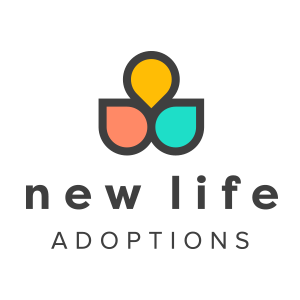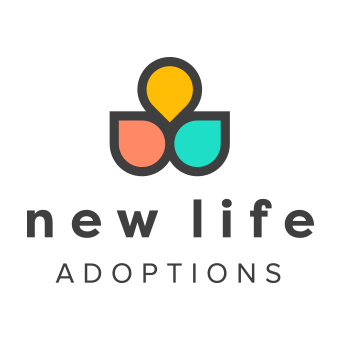Are you considering making an adoption plan but feel stuck by fear of the unknown? Maybe you only know what you’ve seen in the media or from another person’s experience. Or maybe you’ve decided to make an adoption plan but have questions when it comes to openness. These are all valid emotions, and your concerns are worth addressing. Our Expectant Parent Social Workers are a helpful resource throughout this process. They are committed to providing education, exploring your fears, and answering your questions about adoption and openness throughout your pregnancy and beyond.
These are some of the common myths about adoption and the truth of what adoption is really like.
“I could never do that”
We understand that any pregnancy decision is life-changing. We want to walk with you in the decision-making process. This does not need to be a rushed decision. You have time to decide, and we encourage you to continually talk with your social worker throughout your pregnancy. As a neutral third party, she can help you dig deeper into these feelings. She’ll also address the fears and concerns you may have, identify the support people in your life, learn about your goals and dreams, and help meet the unique needs you have in order make the best decision for you and your unborn child.
“Adoption might seem scary at first, but it is the best possible thing you could do for your kid. You are choosing to save your child’s live and give them things you might not have been able to give them otherwise.” – Adoptee, age 14
“Adoption is a selfish choice”
Deciding whether to place for adoption or parent is a big decision; a lot of thought goes into it. Women and men who choose to make an adoption plan do so for many different reasons, but all of them do so out of love for their child. Making an adoption plan is a loving selfless decision. Whatever you decide, by keeping your child at the center of your decision-making process, you will be making a selfless decision that is best for him or her.
“Adoption doesn’t mean birth parents don’t want to take care of you. It means they want to take care of you but are unable. Adoption means they love you.” – Adoptee, age 11
“Adoption is an excellent parenting choice that unites a child with another family. Both the parents and the child benefit from an adoption. It is not one-sided. The parents have the opportunity to open up their homes and invest deeply into a child’s life. A child is placed in an environment with the potential to pursue his or her goals and dreams.” – Adoptee, age 20
“My child will hate me when they grow up or won’t understand my adoption choice”
Children who are adopted often see themselves as special, being loved by not one but two families. Research has shown that as openness and/or access to information about birth families has increased in adoption, adopted children appreciated their birth families as they grow up and desire some connection with them. In addition, studies show that children who are adopted are as well-adjusted as their non-adopted peers.
“Adoption is probably one of the best decisions you’ll make in your life. It might be scary at first, but it’s a wonderful thing that you and the child can have.” – Adoptee, age 10.
“I’m scared that the adoptive family will change their mind about openness or stop all contact with me once the adoption is finalized”
We understand that openness is a new concept for many considering adoption. Openness is communication between birth families and adoptive families for the sake of the child. It is built on a foundation of respect, honesty, and communication. Openness is also a lifelong connect and is fluid, so it can ebb and flow, just like any relationship.
Every situation is different, and openness looks different in every adoption. We have conversations about openness throughout the adoption planning process with birth families and adoptive families. We match birth parents with prospective adoptive families who desire the same level of openness.
“[On my adoption journey I have learned that] openness may change over the years and that it’s okay. And that it’s [okay] to experience times of less communication and more communication. That it’s okay to experience a variety of emotions with the adoption experience.” – Birth mom
“I could never have openness, because that would make it too hard on me”
We understand there can be a variety of emotions when considering openness and how that will impact you both now and in the future. Your social worker can help you explore openness and how much (or little) you’re comfortable with. We want to make sure you are well informed and have a plan you’re confident in.
Many birth moms have shared that openness is helpful to have, especially after baby transitions to the adoptive family’s home. Ongoing openness has been shown to help in the grieving process and reaffirm a birth mom’s decision to place.
“[Openness] is not as scary as it [originally] seemed. In the sense that I was afraid it wouldn’t be open enough somehow, some part of me was so scared that I wouldn’t be able to protect my daughter anymore. But that’s not true, I am doing everything I can to protect her, I was not in a place to raise her on my own and because I placed her for an open adoption, not only does she have two loving parents who protect her and are able to provide and care for her in the way she needs, I am still able to be present in her life and watch her grow up and be there to support and love her” – Birth mom
“Openness would be too confusing for the child”
We’ve seen the opposite to be true! Through research and stories from adult adoptees, openness with birth families has proven to benefit adopted children and youth in many ways. Adopted persons who have regular contact with their birth families create familiarity and normalcy which makes connecting more natural throughout life. They also find it easier to answer questions that help in identity formation and self-confidence, as well as staying informed about their medical history. Birth parents can share from an early age why they made an adoption decision for their child. This communicates a loving decision and greatly reduces a feeling of abandonment.
“Because I’m in an open adoption I enjoy seeing my birth family. Why – because it’s good to know where I came from.” – Adoptee, age 11
We understand considering adoption can bring up a lot of questions and unknowns. It’s okay; your emotions and questions are valid and important to address. We are here to help you guide you in making the best plan for you and your child. Get connected with one of our Expectant Parent Social Workers today to talk through what adoption may look like for you.




